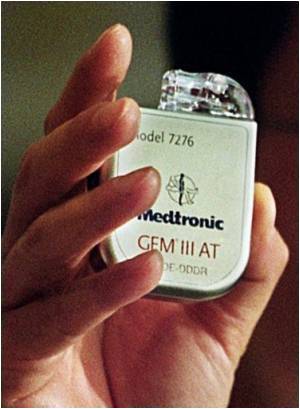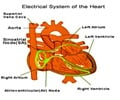The European Heart Rhythm Association aims to raise awareness about the importance of ICDs and sudden sudden cardiac death in countries in Central and Eastern Europe.

"This is becoming challenging in a day where the global economy is shrinking and Europe is even more under pressure now," said Professor Angelo Auricchio (Switzerland), president of EHRA. "Usually the first things that are cut in the national budgets across Europe are implantable therapies because they are a long term investment. You have to implant an expensive device for which the return will be seen in 4 to 10 years."
He added: "I'm very afraid that in the bad European economic situation it will become even more challenging to properly treat patients who need implantable devices. With our initiative we hope to raise awareness about the importance of implantable devices and sudden cardiac death so that cash strapped governments do not cut these very important and proven therapies."
An EHRA ICD for Life Summit will be held in Belgrade, Serbia, during 19-20 October, to discuss challenges and unmet needs in Central and Eastern European countries. The Summit is targeted at politicians, health insurance companies, policy makers, representatives of health ministries, arrhythmologists and electrophysiologists. The president of the Summit Organizing Committee is Professor Goran Milasinovic (Serbia), who pioneered the ICD for Life idea.
"Our aim is to convince the decision makers that this is a part of cardiology which needs better financing, and that they will get a return on their investment in terms of decreasing mortality," said Professor Robert Hatala (Slovakia), chair of the EHRA National Societies Committee. "The scientific evidence that these therapies are not a luxury but a highlyefficient therapy with no alternatives is very powerful."
An expected outcome of the Summit is that each country will identify its own obstacles to treating patients with CIEDs and catheter ablation,. EHRA will then help with solutions, which may include training doctors to implant devices and perform catheter ablation. Central European countries, primarily Czech Republic, Hungary, Poland, and Slovakia, who have successfully established arrhythmia programmes under difficult conditions in the last 10-15 years will provide mentoring , hands on training and on-site support.
Advertisement
Professor Auricchio said: "We hope to capture the attention of patients, patient organisations, policy makers and insurance companies and help them understand that sudden cardiac death is an important problem which needs to be solved, because we do have effective therapies."
Advertisement
Source-Eurekalert










